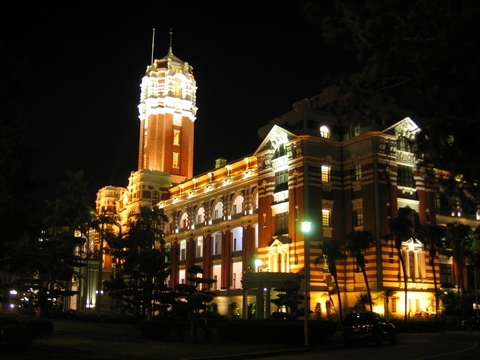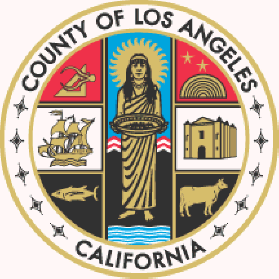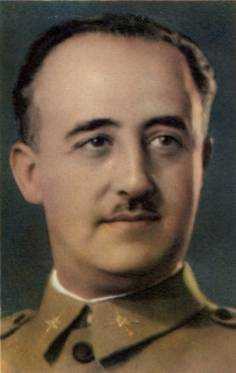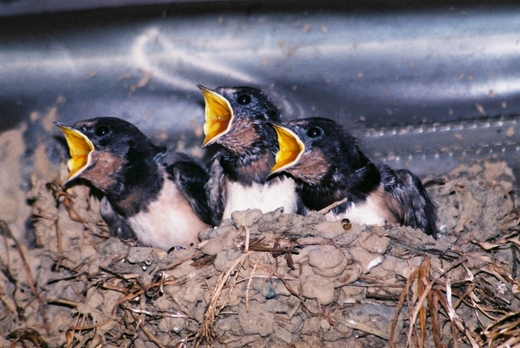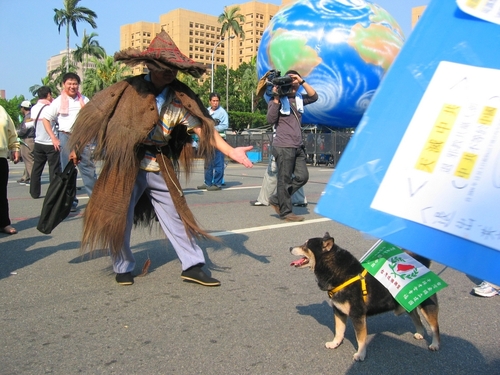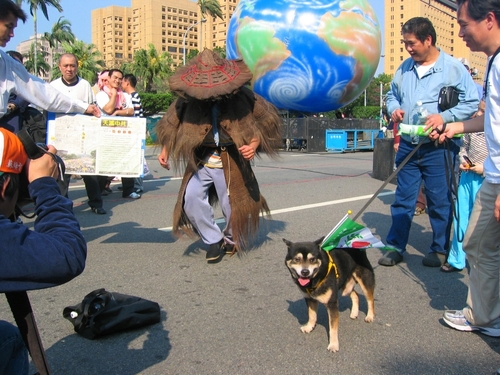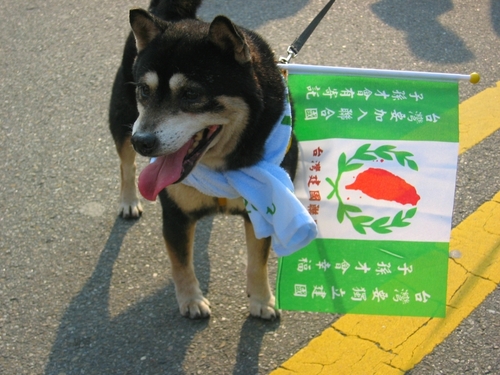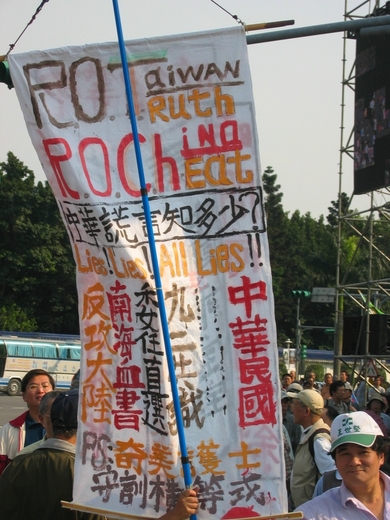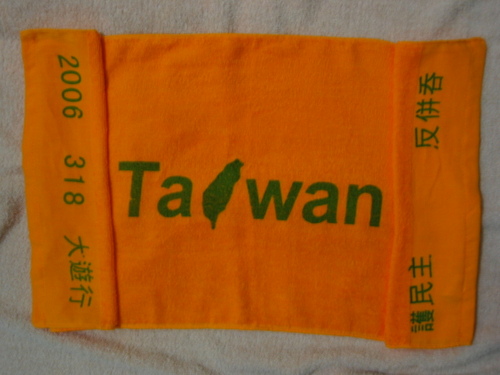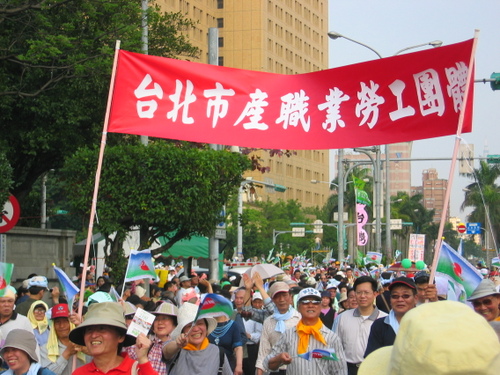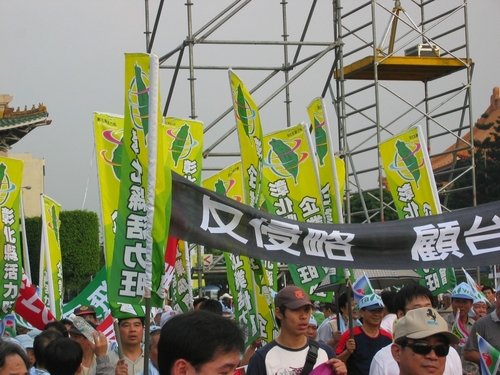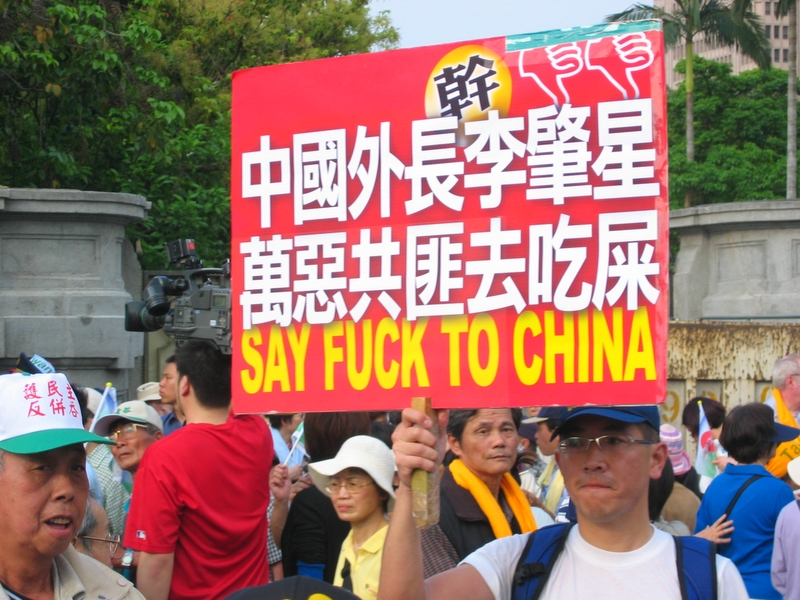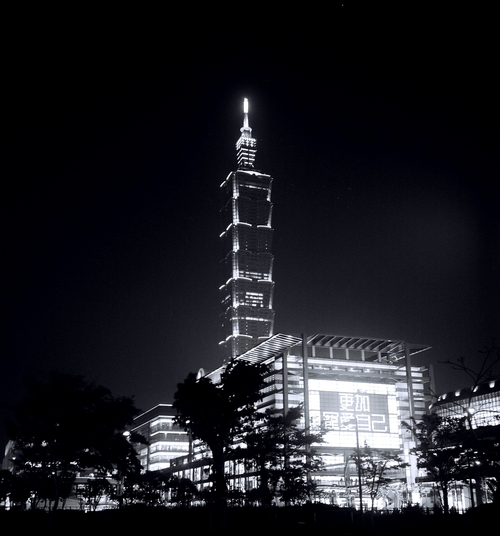Read the papers late last night, and saw that the China Post editorialists were proposing an international "Chinese Commonwealth" based on the model of the British Commonwealth. Members would presumably have to have large populations of ethnic Chinese, so places like Singapore and Malaysia might be eligible, along with Taiwan and Communist China. The editorialists have in mind a friendly fraternal organization, and who could possibly object to an innocent little thing like that? Let’s hear them out:
[Nations] in free association as in the [British] Commonwealth could serve as a model for links with the mainland. This would allow a free and self-governing Taiwan to have an association with China based on the shared history of Chinese culture. There is no one member [in the] Commonwealth with greater privileges than another — they are all equal. This would allow Taiwan and China to have an association where neither was superior to another, though they could recognize a common heritage. This would not be based on one common government, but on a common heritage. While it may be possible to deny that Taiwan has constitutional links to the Chinese mainland, it is not possible to deny that the people of Taiwan and China share a Chinese heritage — as reflected in the cultural heritage of shared cultural and religious holidays.
The Commonwealth has been compared to an English gentleman’s club and a lot of store is placed on membership — membership often seems to be more important than the benefits involved, and attracts much more attention — than what the organization actually does. This is because the main benefit of membership is the opportunity for close and relatively frequent interaction, on an informal and equal basis, between members who have ties of language, culture and history. This arrangement would allow Taiwan and China to interact on a free and informal basis…the interaction in such a Commonwealth arrangement would be relatively free and simple.
Now, while reading the papers I happened to be watching the movie Bowfinger too, and by strange coincidence, one line seemed particularly applicable to the suggestion at hand. When the actors in a B-movie learn that they’ve been conned by a producer/director, Christine Baranski’s character says wistfully, "I think…it was a beautiful lie."
"Beautiful lie" sums up perfectly the claim that, "The interaction in such a Commonwealth arrangement would be relatively free and simple." The KINDEST thing that could be said about the assertion is that it’s breathtakingly delusional. For starters: If interactions in this hypothetical Commonwealth would be so simple, then under what NAME would Taiwan be registered? Would it go by the "Republic of China" or simply "Taiwan"?
We all know very well that the People’s Republic of China would NEVER allow either one, and Taiwan would be forced to go by some absurd construct like "Chinese Taipei". Which kinda reminds me of that scene in Roots:
PRC: Your name is Taipei! Chinese Taipei!
Taiwan: China! Republic of China!
(sound of whip snapping across Taiwan’s back: WHI-CHHHHH)
PRC: CHINESE TAIPEI!
Taiwan: Republic of China.
(WHI-CHHHHHH)
PRC: What is your name?
Taiwan: T-T-T-Taiwan?
(WHI-CHHHHHH)
PRC: What is your name?
Taiwan: Chinese Taipei.
(etc.)
In the same vein, if relations in the club are to be so collegial, can we assume that the ROC flag will be displayed in the clubhouse along with all the others? Or like a Vogon construction plan, will it be "on display in the bottom of a locked filing cabinet, stuck in a disused lavatory with a sign on the door saying, ‘Beware of the leopard’ "?
The China Post ordinarily expresses such passion for Taiwan’s symbols – considering it sacrilegious to remove even dilapidated statues of Taiwan’s former dictators from military barracks. Surely then, it can be counted on to defend the use of Taiwan’s symbols in the mooted Chinese Commonwealth. Or are the China Post‘s editorialists like the loser in high school who’ll do anything – ANYTHING – to be friends with the class bully?
In all honesty, I’ve never heard of a "friendly gentlemen’s club" where one of the members was ordered not to use his own name because another member found it abhorrent. If China gets to choose what Taiwan is called in the organization, then it most definitely DOES hold a superior rank. Equality in such a club could only exist in the minds of those who live in a wonderful magical land of elves, leprechauns and One China with different interpretations.
Let no one object that members of the Chinese Commonwealth would be equal if the issue of names and flags could be finessed. Kunte Kinte was NEVER the equal of the slave-masters so long as they had the power to compel him go by the name of Toby. If Taiwan can’t even defend the right to its own name in the Chinese Commonwealth, then it has absolutely NO hope for defending its other interests there.
Despite my objections, I’m glad the China Post published their editorial, because I managed to learn a few things that I didn’t know before. For instance, I was unaware that the original 13 American colonies are eligible for British Commonwealth membership. And I had forgotten all about the talk of suspending Britain from the Commonwealth for its support of apartheid-era South Africa. Speaking of that, I’d also completely forgotten about South Africa’s suspension.
Well, I guess it’s been a while.
The example of South Africa does lead me to a question, however. If South Africa and even Britain herself could be suspended from the British Commonwealth over the issue of apartheid, then shouldn’t China be prevented from joining a Chinese Commonwealth for its own undemocratic policies? If we admit that not allowing black South Africans to vote was an injustice, then surely not allowing ANY Chinese to vote is an even GREATER injustice.
Finally, one other fact I didn’t previously know is that Ireland withdrew from the British Commonwealth in 1949, and that the Irish sometimes debate rejoining. That little tidbit seems particularly apropos to Taiwan’s situation. For can anyone even imagine the Irish discussing Commonwealth membership if Britain currently had 800 missiles packed with high explosives pointed at downtown Dublin?

